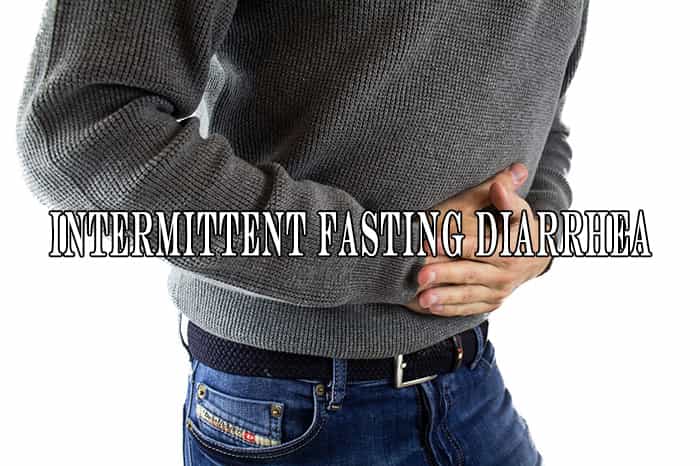
Fasting might have negative consequences for certain people. Diarrhea is among the less prevalent adverse effects. This article will discuss the causes of Diarrhea while fasting, whether you should be concerned, and how to prevent intermittent fasting diarrhea.
Fasting is a common approach for weight reduction and overall wellness. It entails going without meals for a lengthy period, ranging between 16 hours to a few days.
Fasting can be beneficial to your health. Fasting has several advantages, including improved blood sugar control, stable insulin sensitivity, prevention of diabetes, and a lower heart disease risk.
Intermittent Fasting Diarrhea
Fasting diarrhea does not affect everyone, but if you encounter intermittent fasting and Diarrhea, you should take it carefully.To begin with, Diarrhea while fasting is unpleasant and may deter individuals from sticking to fasting. Even more concerning is the reality that Diarrhea can result in dehydration.
Fasting makes your body more susceptible to interruption, and fasting when dehydrated is dangerous, mainly if you are fit and healthy or in a hot setting.
Finally, gastrointestinal symptoms when fasting might indicate issues that need to be addressed.These difficulties vary from improper fasting habits to situations requiring medical care. Following that, you’ll discover what causes various forms of intermittent fasting diarrhea and what you can do about it.
What exactly is Diarrhea?
It is a digestive condition in which patients pass sloppy or watery feces more often than usual.There might be a variety of causes for Diarrhea when fasting; nevertheless, it is typically brief and can cause weight loss. Weight loss may not be directly related to Diarrhea. In rare circumstances, prolonged sickness might result in water weight loss.
Diarrhea During Fasting
It is uncommon to get Diarrhea during fasting, although it does occur. Diarrhea is triggered by food and water passing through your digestive tract too rapidly. As a result, you do not absorb the nutrients and energy content of the meal since it goes through undigested.
Having Diarrhea or runny feces when fasting is not typical. However, if you have Diarrhea amid a liquid diet (when you’re only drinking water and not eating), you should immediately break your fast. Diarrhea during fasting is harmful.
What are the symptoms of diarrhea while intermittent fasting ?
Diarrhea happens when food and nutrients flow too fast through the gastrointestinal system and depart the body without being absorbed.
Diarrhea throughout a fast may result in the following adverse effects:
- dehydration
- malnutrition
- malabsorption
- cramping
- nausea
- Dizziness
Diarrhea and side effects such as dizziness can be difficult and hazardous during a fast. Your body is already more prone to feel dizzy, exhausted, and nauseous while fasting. Diarrhea exacerbates these.The combo of hunger and Diarrhea might cause some people to faint.
For these reasons, it’s best to break your fast until your symptoms improve, then resume fasting once you no longer suffer Diarrhea and associated side effects.
What Causes Diarrhea After Fasting?
Fasting-related Diarrhea is most common in those with irritable bowel syndrome. The primary cause of Diarrhea following fasting in healthy people is poor dietary choices and not the practice itself. To avoid Diarrhea or other stomach-related disorders, create a complete nutrition plan for your feeding period and once you’ve interrupted your fast. Here are some of the most prevalent causes of Diarrhea:
- 1. Fasting with high-fat foods:
High-fat meals are difficult to digest after a fast. So, continue your regular eating regimen by eating modest meals at regular intervals.
- 2. Food poisoning:
To avoid meal poisoning, eat fresh and sanitary food.
- 3. Lactose intolerance:
Drinking milk after fasting might induce Diarrhea. In addition, people who are lactose intolerant may experience nausea, bloating, or Diarrhea after fasting.
- 4. Other food allergies:
You may be sensitive to some foods, which might worsen when ingested on an empty belly, producing Diarrhea.
- 5. Excess caffeine consumption:
Excessive use of unsweetened tea, caffeine, or other coffee drinks after fasting can cause various issues such as a rapid heart rate, vomiting, and Diarrhea.
- 6. Consumption of zero-calorie sweeteners:
Long-term usage of zero-calorie sugar substitutes can contribute to weight gain, diabetes type 2 fat, cancer, and other health problems.
How to Prevent Diarrhea Following a Fast
The most common cause of diarrhea after fasting is poor meal selection. So, once you break your fast, start with small meals that are easy on your stomach. You can split your fast with bone broth, steaming vegetables, fruits, yogurt, or eggs. Stay hydrated within your dining window. You can eat little meals regularly to allow your body to adjust to your eating plan.
Additionally, avoiding coffee immediately after finishing a fast may help stop diarrhea. To prevent food poisoning, ensure that the meal you ingest is prepared in a clean atmosphere.
After-fasting diarrhea remedies
Diarrhea soon after ending the fast can cause dehydration, weakness, disorientation, and various other symptoms. In such cases, you should refrain from fasting and concentrate on sleeping and restoring energy through balanced eating. Here are some essential home treatments for treating diarrhea.
- 1. Increase Fluid Intake
Drinking plenty of water can help you rehydrate your body. Liquids, soup, electrolyte replenishment drinks, and ginger tea can also be included. Oral rehydration solutions are the most effective at keeping your electrolyte balance in check.
- 2. Follow a Low-Fiber Diet
To treat diarrhea symptoms, adopt the BRAT diet, consisting of Banana, Rice, Apple juice, and Toast. For diarrhea, the BRAT program is advised. It comprises simple meals that are heavy in carbohydrates and low in fiber.
You can also eat foods high in pectin, potassium, and proteins, which are thought to aid with diarrhea. Bananas, potatoes, oats, soft-cooked vegetables, boiling poultry, soups, vegetable broths, and so on are some examples.
- 3. Consume Small, Frequent Meals
Too much food in your gastrointestinal system might aggravate diarrhea. However, you will require extra energy to get through the day. As a result, eating five to six modest meals rather than one large meal each day is helpful. This allows your bowel to absorb the meal and reduces diarrhea symptoms.
- 4. Improve Your Digestive Health
To reduce the likelihood of bowel problems, you should enhance your overall digestive health. A healthy diet rich in fiber-rich veggies and probiotics is one of the secrets. However, a colon cleanse can purify your body, boost intestinal bacteria, and even help you lose weight. I propose Colon Broom, which you may also use throughout your fasting period.
The takeaway
Fasting does not produce Diarrhea on its own. Therefore, Diarrhea is not an unintended consequence of fasting. However, Diarrhea while intermittent fasting might give valuable information regarding whether or not you’re fasting effectively and other underlying issues.
As you examine probable reasons, keep an eye out for indicators such as how long it might take and how often it happens. Make your own oral rehydration solution (ORS) to treat diarrhea-induced dehydration. If you cannot resolve the issue, consult a physician.



